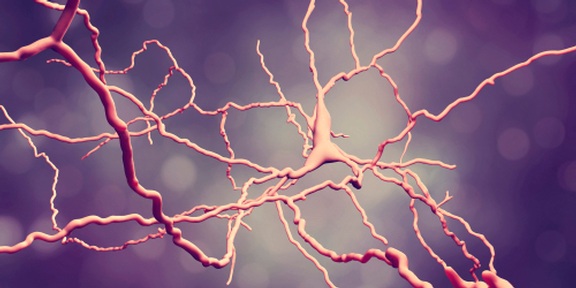Huntington's disease begins affecting brain development in childhood
The inherited gene that causes Huntington’s disease starts affecting brain development in childhood, according to new research.

It is hoped the findings by Cardiff University, University of Erlangen-Nuremberg and Lund University will help researchers to develop new treatments that could delay the onset of the disease, as most people don’t show symptoms until the ages between 30 and 50.
The disease affects the nervous system and causes stumbling and clumsiness, involuntary jerking of the limbs and body, memory lapses, mood swings, personality changes as well as problems swallowing, speaking and breathing.
It is inherited and if a parent carries the Huntington’s gene, the child has a 50 per cent chance of inheriting it.
Dr Florian Siebzehnrubl from Cardiff University, said: “There is still no known cure for Huntington’s, so it is vital that we gain an understanding of the processes happening in the brain throughout a lifetime, so that we can develop effective treatments.
“Our new research gives us a better understanding of the point at which the mutant gene begins to influence the brain, and this will provide further detail that can allow us to develop potential treatments for this fatal disease that could be given from a younger age before people become symptomatic.”
The faulty gene produces a toxic protein called mutant huntingtin. Mutant huntingtin protein slowly poisons specific groups of brain cells, leading to gradual dysfunction and decline in motor skills, cognitive abilities and behaviour over a twenty year period. The disease ultimately leads to patients needing 24 hour nursing care and is fatal.
It is estimated that around 7,000 people in the UK have the disease and men and women are affected equally. There is currently no cure and no way of preventing it from progressing.
The study ‘Early postnatal behavioral, cellular, and molecular changes in models of Huntington disease are reversible by HDAC inhibition’ was published in the Proceedings of the National Academy of Sciences of the United States of America.
Latest News
 29-Jul-24
Dementia Bus gives carehome.co.uk staff insight into life with dementia
29-Jul-24
Dementia Bus gives carehome.co.uk staff insight into life with dementia
 01-Mar-24
Find out the top care homes in 2024
01-Mar-24
Find out the top care homes in 2024
 21-Mar-23
UK's top care homes in 2023 revealed
21-Mar-23
UK's top care homes in 2023 revealed
 03-Jan-23
carehome.co.uk launches free care helpline
03-Jan-23
carehome.co.uk launches free care helpline
 13-Dec-22
5 mins with Emily Whitehurst, chief operating officer for Constantia Healthcare
13-Dec-22
5 mins with Emily Whitehurst, chief operating officer for Constantia Healthcare